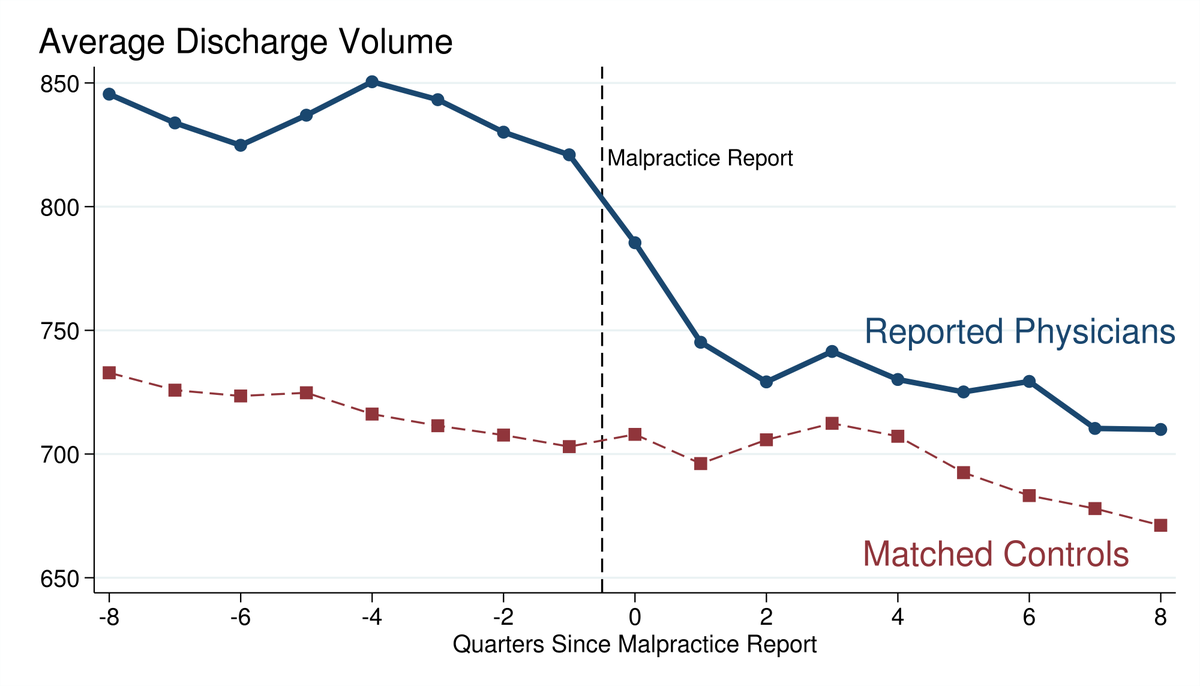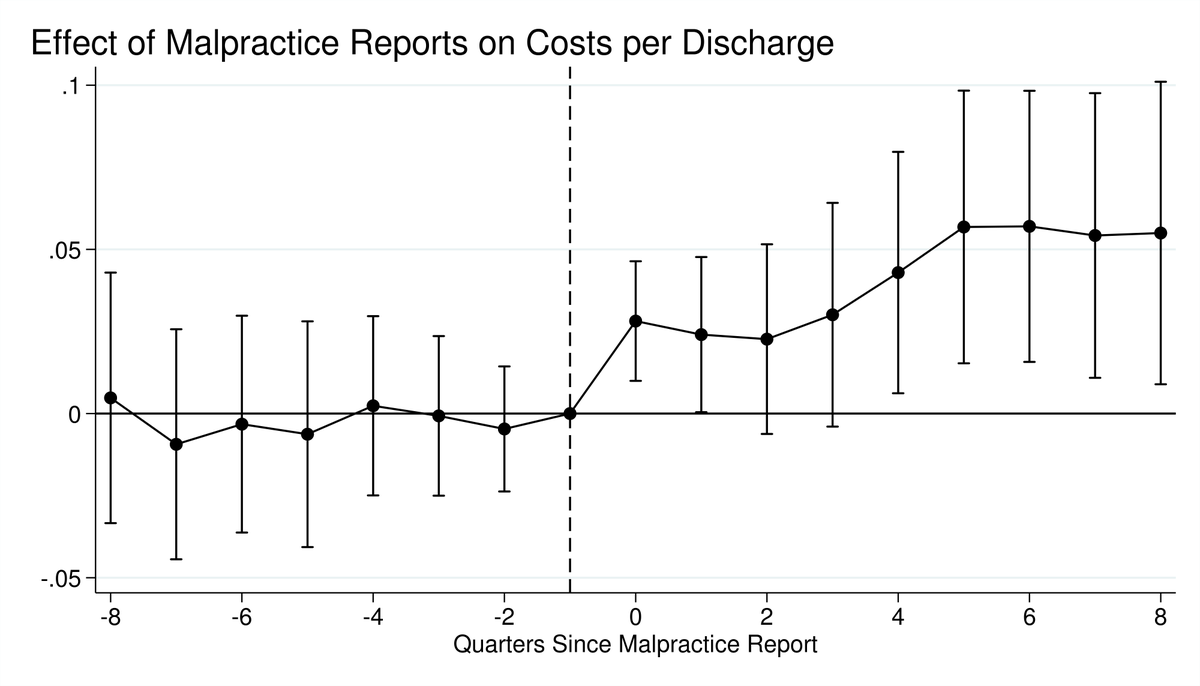Looking for a break from the news? Read our *New Working Paper*
“How do Physicians Respond to Malpractice Allegations? Evidence from Florida Emergency Departments”
joint with @cutler_econ and @AnupamBJena
@nberpubs WP out today
https://www.nber.org/papers/w28330
Thread:
“How do Physicians Respond to Malpractice Allegations? Evidence from Florida Emergency Departments”
joint with @cutler_econ and @AnupamBJena
@nberpubs WP out today
https://www.nber.org/papers/w28330
Thread:
2/ We study how malpractice liability impacts physician behavior. There is a large literature on this topic, but it mainly focuses on state law changes – e.g., caps on non-economic damage awards. These reforms don’t have a large financial impact on docs and may not be salient.
3/ We test how physicians respond to accusations of malpractice. Why? Allegations of malpractice are common and highly salient. 75% of docs face an allegation during their career. These allegations have uninsured costs (time, emotional energy) that monetary payment does not.
4/ We leverage quasi-random variation in the timing of malpractice allegations across physicians. Our sample is Emergency Department physicians in Florida, where we have the universe of data on patients and how they are treated along with a census of malpractice complaints.
5/ What do we find? First, physicians work less after malpractice allegations, decreasing their discharge volumes by 9%. The decrease happens right away and is persistent over time.
6/ Second, physicians increase their treatment intensity among their remaining patients. Costs per discharge increase by 4% after malpractice allegations.
7/ If malpractice allegations help physicians correct errors, we’d expect the responses to be related to the alleged error in treatment of the harmed patient, or be stronger if more money was paid to the claimant. However, we find that physicians change their behavior generally.
8/ Is this defensive medicine? In our context, it’s hard to value all additional care provided. However, our results suggests that the value of the additional care is small: physicians respond to frivolous allegations and increase care for all patients.
9/ What does this mean for overall spending? Allegations led to both negative (seeing fewer patients) and positive (providing more care) responses in physician behavior. For reported physicians, these effects are offsetting. At the system-level, this is only part of the story.
10/ For aggregate spending among *all* physicians, the reduction in labor supply is not a reduction in costs if the same number of patients go to the ED. Taking this into account, the net effect of all allegations is a modest increase in spending.

 Read on Twitter
Read on Twitter




